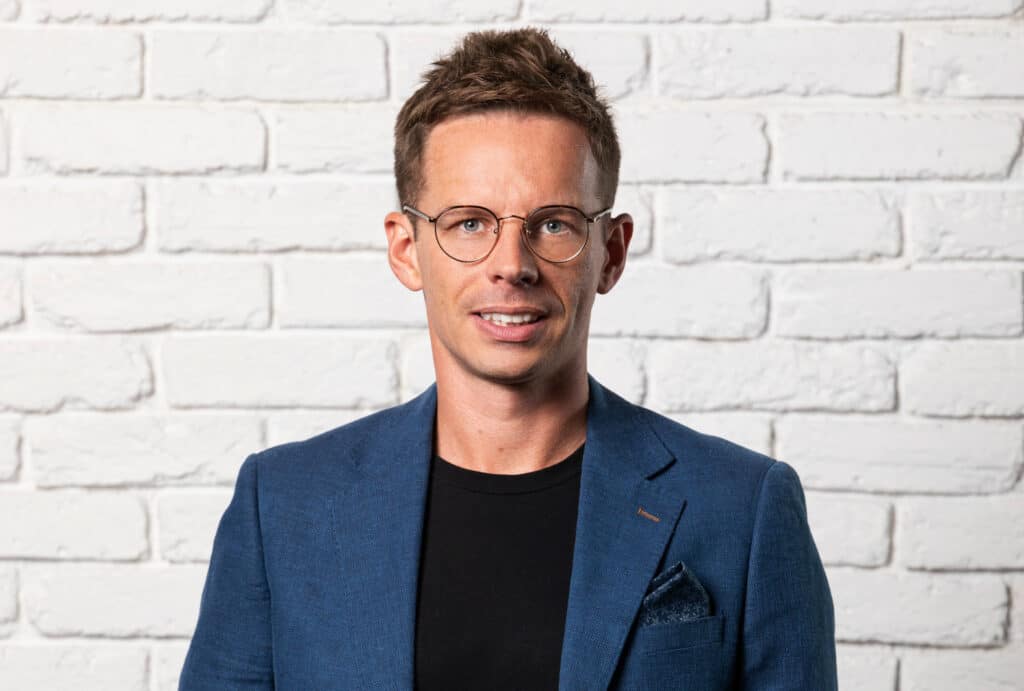Back in April, I wrote about a real job audition we did. Old school, no technology, no efficiency. We agreed the terms upfront – one week, fully paid, measurable goals, then a decision.
Read how we did it in “We Did a Real Job Audition, and it Worked”
It seemed only fair to give our candidate a chance to give her own feedback on the process. So, here’s Nicole, product marketer at Vervoe, telling the whole truth on what it’s like to be hired during a pandemic.
Transcript
Omer: Hey, Nicole. We’re just going to have a chat about your experience joining the company. So first of all, tell us what your role is at Vervoe.
Nicole: So I am the Product Marketer for Vervoe, which is a pretty exciting role. Some of the main things I’ve come on board to do is to activate product-led growth. And a lot of that’s to do with how we can better service people coming into the product, and how we can activate them and getting them using the product and engaged with it more.
Omer: So, okay. So let’s just de-jargon that a bit. So for, sort of humans, what does that actually mean? Let’s take a step back. What does Vervoe do? And you know, for someone who really is not deep in our world of SaaS, another acronym, what, what’s all that about?
Nicole: So Vervoe is, and this is another acronym, AI. It’s powered by.
So AI, well artificial intelligence and the fact that it’s algorithms, generated off human data, that help predict or score, what somebody is saying. So, yeah, it’s involved in lots of different things. But particularly, for Vervoe, we have created a tool that helps recruiters and companies looking to hire people.
We help them remove the bias from that process. So instead of screening a bunch of resumes that come in and looking at where somebody has gone to school, or where they’ve previously worked, you can send everybody a skills assessment from Vervoe and it grades ranks, reviews, everybody’s responses.
So you can see the candidates that actually have the skills that you need for the job, without ever actually diving into their history. And, I guess that bias around who they are, gender, where they’ve gone to school. It removes all of that from the process.
Omer: Okay. So, you said your role is product marketing.
So, what does that mean? And is it product? Are you building a product or are you marketing the product?
Nicole: So product marketing at its core is I guess, customer advocacy. So I see product marketing as a way to connect the worlds, I suppose, between product and what goes on in the customer’s world.
So, product marketers tend to spend a lot of time in data. We spend a lot of time understanding how customers experience things, and we make sure that we connect the two as seamlessly as possible. So we take how, a person would like to experience a product and we make sure that those things are there for them, those pathways are there.
We try and ease the barriers, I guess, that would normally be there for somebody coming into a product. So, you know, we help with messaging. We make sure we’re bringing the right customers in. We make sure that the people that are coming fit with what we’re selling. We make sure that they understand that, we make sure that they then go on to be able to use the product and that they can grow and hopefully become advocates for it as well.
Omer: So that, that sounds like a lot of work. So, you know, why wouldn’t I just, as a customer, talk to a human to just explain all that to me. Why, why are you doing all this work? .
Nicole: Human interaction is brilliant, but it’s also, it can’t be scaled for software. So that one to one human interaction is great, I suppose, for our high touch customers.
So, large businesses with big procurement processes and teams involved in them that, you know, require really bespoke solutions. But you know, your smaller, medium businesses. They do a lot of online discovery. A lot of like, “I have this pain point, I have this need, I need to go and get it fixed now.” So the human interaction there is not scalable.
So, if you’re talking about large volumes of people coming to a website, we need to be able to then recreate that human experience, but in the way that they come in to the product, the way they experience it. So the product needs to be familiar to them. So we need to create that human interaction, but build it into the product so that instead of having to have a person to person for every single customer that comes to you, you just have this experience, which helps them feel like they’re actually having their hand held through the process without someone having to do it for them.
Omer: Okay. So basically there are folks who don’t necessarily want to talk to sales. They want to just explore things for themselves. And if I understand correctly, your job is to make that experience straightforward, easy, and pleasant.
Nicole: Yeah, I think, I mean, historically there’s a broader strategy, you know, there’s, sales led strategies for growth. There’s marketing-led strategies for growth. And then there’s product-led strategies for growth.
So sales-led strategies, you know, they’re from almost the archaic way, there was a physical piece or box that sat in a physical store in some way. And, you know, procurement processes took months and months and cost hundreds of thousands of dollars.
And then that kind of evolved into marketing-led growth, which was more about that inside sales and bringing people to you a little bit, you know, as costs and data moved to the cloud. That face to face contact moved away a little bit more.
And now we’re kind of in this era where everything’s a lot more flexible. There’s a lot more elasticity around products and how they’re developed. And the efficiency and gains there have been able to come back into products for consumers.
So it’s more about you getting in for free and trialing products. Because it’s, you know, that’s a nice pathway to experience it. So it’s sort of more about user-led growth and adoption now, which is where product-led growth comes in. And so, it’s about making that experience accessible to everybody and not somebody that’s having their hand held through a process.
Omer: I’ve got a few more questions on that, but I want to just swing to like, your general experience with the company, and then we’ll come back to some of the challenges that you faced as you had to sort of roll your sleeves up. So,
So when did you join?
Nicole: I joined at the end of March.
Omer: That sounds like it was in the middle of a pandemic I can’t believe Vervoe was hiring during a pandemic when everyone else had frozen hiring, I’d better talk to management and find out what’s going.
So, in the middle of March, and so, you know, that would have been an unusual experience. So, talk me through what that involved and what that was like. And, you know, not, not coming in in person not meeting people in person, even though you’re in the same city in Melbourne, as head office.
And we live like actually like three streets away from each other, but we’ve never met in person. So, talk me through what that was like.
Nicole: Yeah. Well, as you mentioned, I started around the time that COVID was peak in Australia. So everybody had gone into lockdown. Everybody was kind of scared, shops were stripped bare, all that was happening. The opportunity came along to work with you guys, but it was purely remote. So, I think it took until about a week after I started before I’d even actually seen some people face to face. It had been phone calls previous to that. And lots of Slack and integrating into things like that.
Personally it’s been a great experience for me. I haven’t had any issues. I mean, this interaction via Zooms and Hangout and Meets and things like that has been wonderful.
It’s almost a little bit more personal than you’d probably find starting in an office because I’ve seen into people’s houses. I met their kids, I’ve seen their animals, so that’s been a really nice way to get to know people quite quickly, as opposed to being in an office setting, I suppose, where it takes a bit longer for them to warm up.
In terms of, you know, integrating into how Vervoe works it’s been wonderful because everything’s in the cloud anyway.
All the tools we use are all collaborative tools. So there hasn’t been any sort of like, offline issues in setting up there, in terms of onboarding and getting to know people, I mean, there’s been different times zones, so it’s been like a few early meetings and a few later meetings picking up with, the guys in the States.
But I mean, that’s kind of a standard now I think in most businesses. So yeah, it’s been good.
Omer: Have you felt, you know, isolated – I mean I feel isolated sometimes and I’ve been with the company, since there was no company and, you know, I know everyone and whatever, and but I’m still working from home and I sometimes feel like God, it would be good to just sit down, like – I’d have lunch, Steve and I would go and have lunch, our designer and whatever, Alex we’d go and have different, like, I miss that. And for you, you sort of, I guess on the one hand, there’s no change, cause you never had that with us. Do you sometimes feel disconnected or do you feel connected in other ways?
Nicole: It would be nice to, I guess, see everyone face to face.
I think hopefully when all this is passed, it would be nice to sit in a room and have that, I guess the human connection piece. But outside of that, I mean, you know, we have a regular team stand up. There’s like a Friday drinks that we do via Zoom. And so from a social aspect, I don’t feel like I’ve actually missed out on anything.
In fact, it’s probably made it easier for me.
You know, a lot of those events that do happen in previous workplaces after hours, you know, Friday afternoon drinks and things. I’d often be leaving early Fridays, so I could go and get my children. So from this aspect, there’s none of that travel downtime as well. So it’s actually been a lot easier for me to pick up on that social side.
Omer: Okay. So that’s good. It’s good to hear by the way. It’s interesting. I’ve been thinking, as I was sort of thinking about this discussion, I was also thinking about Jaimison who’s in the sales team in North America. And interestingly enough, you know, he lives an hour North of Boston in New Hampshire.
And, he’s used to working like, regardless of COVID or not COVID like he works remotely anyway. And he and I were supposed to travel together in March. We were supposed to go to a conference in San Diego, and a conference in Vegas, and in the Bay area. And we had to cancel that. And he only joined in December.
So like actually he’s in the same boat as you. He hasn’t met anybody in person and it’s kind of crazy to think, like, he and I talk five times a day and we talk on both sides, like my night and his morning, and then my morning his evening. And, we’ve never met, but I guess that was kind of the status quo.
Whereas with you normally you’d been an office of 10 in Melbourne, so it’s kind of made me think a lot about this, this issue. And I sometimes wonder how people are, if people think this is really strange or just, you know, I wonder what people make of this whole situation.
Nicole: Yeah. I mean, to be honest, I’ve been in remote sort of based roles in the past. So for me, yeah, it wasn’t such a shock. You know, I’ve worked in companies that had pretty strong remote and work from home policies. So whilst I would have met people and interacted with them, you know, I’ve also worked in global teams where I’ve been the only person in Australia.
So whilst I might’ve been sitting in an office, the people I worked with day to day, I’d never actually face to face met in a few years. So for me, it’s not a new experience. I could see how for some people, it might be a challenge. and as I said, I am looking forward to the day when I can actually meet everybody in person and see how tall they are and all those sort of things.
Omer: Yeah, not very tall. I think you’ll find not as tall as maybe people, think that .They are. So, I mean, hopefully we get to have, you know, a big Christmas party at my house, this year and hopefully, well, before that, it’s fine to interact in person, but see how we go.
And so just coming back to what we were talking about earlier, you know, You’ve joined the company. Your role is to make it simple and intuitive for people to understand how the product can solve their problem without necessarily having to talk to someone, although they can, if they want. and so what are some of the challenges that you’ve had to solve?
Some of the most obvious, the burning kind of things that you’ve encountered and had to tackle since, since joining?
Nicole: Well, some of the ones that stand out the most, I mean, as this is a new role, the, one of the things that I guess has been the biggest challenge, but also opportunities that onboarding’s pretty non-existent at the moment for, anybody that comes in as a trial or free account.
So that discovery pathway is, you know, we kind of greet you at the front door and then we kick you in. So I guess one of the challenges there has been working out, you know, what’s the best way to introduce what can sometimes be a complex product to a whole variety of different users and a whole variety of different skill sets.
So, some people are quite technical, but some people are completely nontechnical. And, you know, essentially this product is for everybody, but it’s just, how do we best take them on that journey and how do we best bring them in so that even my 70 plus year old dad could experience this product as well and get the most out of it.
Omer: So when you say this product is for everybody, can you narrow that down a little bit? Like, what does that mean? Surely it’s not for everybody it’s for everybody that meets certain criteria right.
Nicole: Yeah. I mean, look, not for everybody, you know, individuals will probably never really have a need for this, actually this is for, it’s predominantly for people looking to hire, looking to hire large volumes of people that, you know, they have a top of top of the funnel issue.
So it’s, I have this role that has, like thousands of applicants every month, I can’t possibly assess all these candidates, I need help doing that. Or, you know, further along there might be people with less volume, but they’ve had issues with bias or issues with, internal talent management perhaps is like starting to feel like maybe they’ve missed some of the great standout hires or perhaps there’s a disconnect in the relationship with hiring managers.
And, you know, Vervoe can really assist with that. Because instead of looking at individuals, we look at skills and we help people sets for the roles, as opposed to looking at the best individual person and their personality, like for that role.
Omer: And so as you’ve gone through this process of, trying to identify the issues and work out what to focus on, what’s something that’s surprised you, whether it’s good, bad, indifferent, or something that, that, maybe it’s about the company, maybe it’s about the product, but something that you’ve really found surprising since joining,
Nicole: Not so much surprising, but it was. It was nice. It was the fact that it’s actually a really, really good product. And it’s. It is what it says it does. You know, there’s a lot of other pre packaged tools out there saying that they’re AI, but they’re not actually not that, they’re just, multiple choice kind of things, but this is actually like genuinely a very, like, it’s a real product.
It’s a real AI. It really, it molds to your personal preferences, it feeds off the data that you give it. So from that angle, that was really nice. I mean, you know, it wasn’t so much a surprise, I suppose, but it was nice to realize that the product is actually what it says it is.
Omer: And so, what’s next? I mean, you know, you spent the first four to six weeks kind of getting across some of the issues and onboarding’s a big one that you mentioned. So for the next three months, what are you focused on?
Nicole: So the next few months is I guess, and really starting to deliver on some of these things that I’ve been looking into in some of these initiatives and working with the product team on.
So first up, we’ll be looking at introducing a new plan to our pricing system to help with our SMB people coming on. We’ll be looking at new onboarding, which is really going to help everybody regardless of their stage and where they’re up to understand the value of the product when they come in, which is exciting.
There’s a lot of small and also big large features coming in, which is also very exciting, we’ll assist people with lots of integrations, lots of features within app and looking at new pathways as well. So reducing some of the clutter that you might’ve experienced in the UI, so that it’s a lot more intuitive, a lot easier to find things. Bringing some insights in as well, which I love, I’m a big data nerd.
So, helping people make quick decisions based off the information they can see. So, you know, you’ll be able to see how many hours you’ve saved by somebody kind of via this assessment, or you’d be able to see many people completed it, or how many people or how much it might’ve cost you per completion, lots of really interesting insights.
If it’s a new assessment, you might be able to see, have some industry benchmarks and see, how many people in your industry have used this and how successful it’s been for them.
Omer: Sounds like a lot, sounds like some good stuff to sink your teeth into. And so, final question, you know, a lot of people are gonna watch these video and some of them are going to be prospective customers or existing customers.
So pretend that, every customer or anyone whose problem we can solve is now listening to this is there something you want to ask them. So imagine you’ve got a global survey opportunity and you can get feedback from everyone. What feedback can the audience give you?
Nicole: I’d love to know what the biggest pain points out like, you know, why are you looking for this?
Why have you come to us? Why is Vervoe and something that you’re considering, what’s the problem that you’re trying to solve? How can this product make your life better?
Omer: Awesome. Well, thanks, Nicole. thanks a lot. It’s been great.
Nicole: Thank you.




















